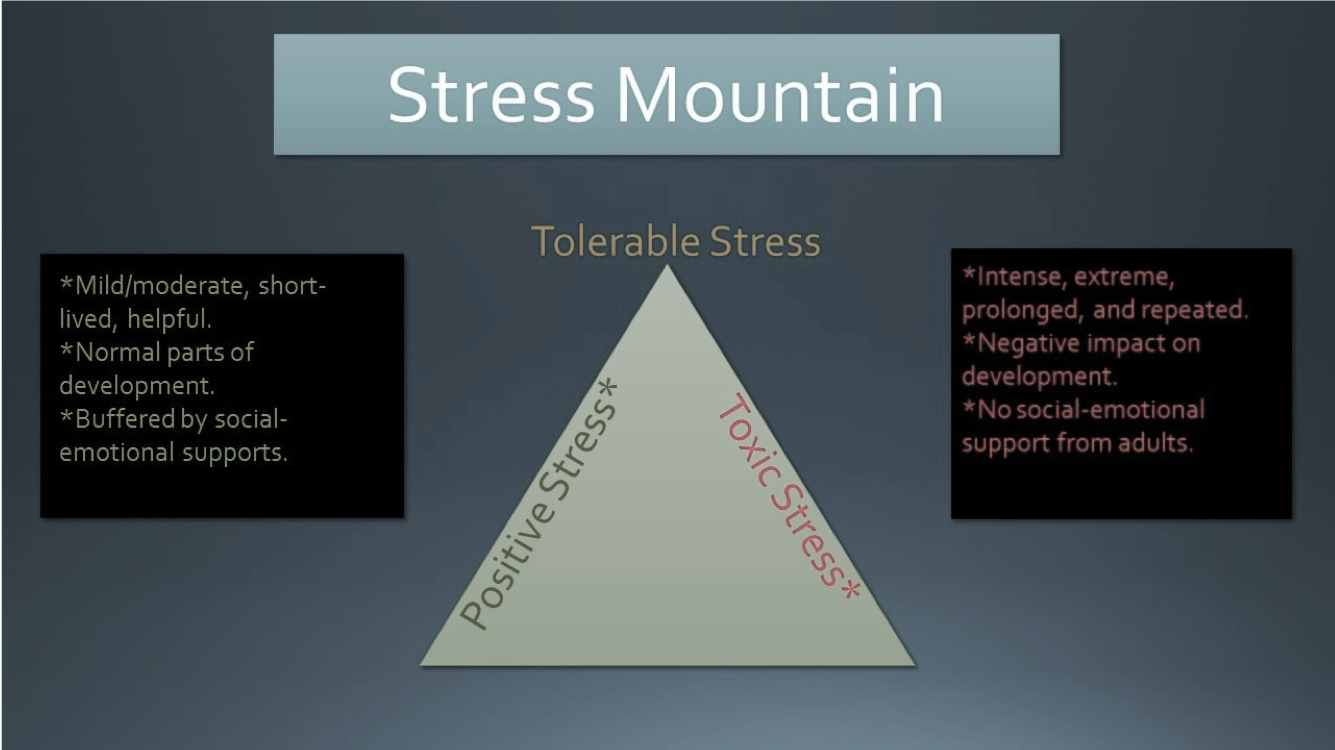Stress Mountain |
Page 2 |
Adverse Childhood Experiences (ACEs)
Most people experience some type of trauma at some point in their childhood but what was largely unknown was the effect that had on the human body long term. From 1995-1997 The Center for Disease Control (CDC) and Kaiser-Permanente joined forces to study the connection between Adverse Childhood Experiences (ACEs) and health and well-being later in life. What was discovered has changed the direction of not only pediatrics and family medicine but of local services and education responses in many communities.
The CDC Kaiser study showed direct correlations between ACEs and negative long-term impacts throughout a person’s life. The brain was drastically affected by prolonged trauma or toxic stress. The trauma that determines ACEs is grouped into several categories including abuse, neglect, and household dysfunction. This training refers to the CDC Kaiser study repeatedly and for more detailed information you should visit https://www.cdc.gov/violenceprevention/acestudy/about.html.
The CDC Kaiser study showed direct correlations between ACEs and negative long-term impacts throughout a person’s life. The brain was drastically affected by prolonged trauma or toxic stress. The trauma that determines ACEs is grouped into several categories including abuse, neglect, and household dysfunction. This training refers to the CDC Kaiser study repeatedly and for more detailed information you should visit https://www.cdc.gov/violenceprevention/acestudy/about.html.
Humans are capable of experiencing and working through three main kinds of stress. They range in complexity and severity from positive stress, to tolerable stress, and finally toxic stress. Some of this stress is necessary to create new neural pathways and synapses for brain development while others will actually harm or delete those new connections altogether. It is important to understand the types of stress and their impact on brain development to truly understand ACEs and why this is such groundbreaking research.
First, let’s think of stress as a mountain. Positive stress is the slope moving up toward the top of the peak. It is normal, helpful and healthy. Tolerable stress is right at the top of the mountain. These are things that are common and do not pose a negative threat to development or well-being. When stress levels tilt toward the downward slope of the mountain because they are prolonged or too intense, the stress becomes toxic and harmful.


